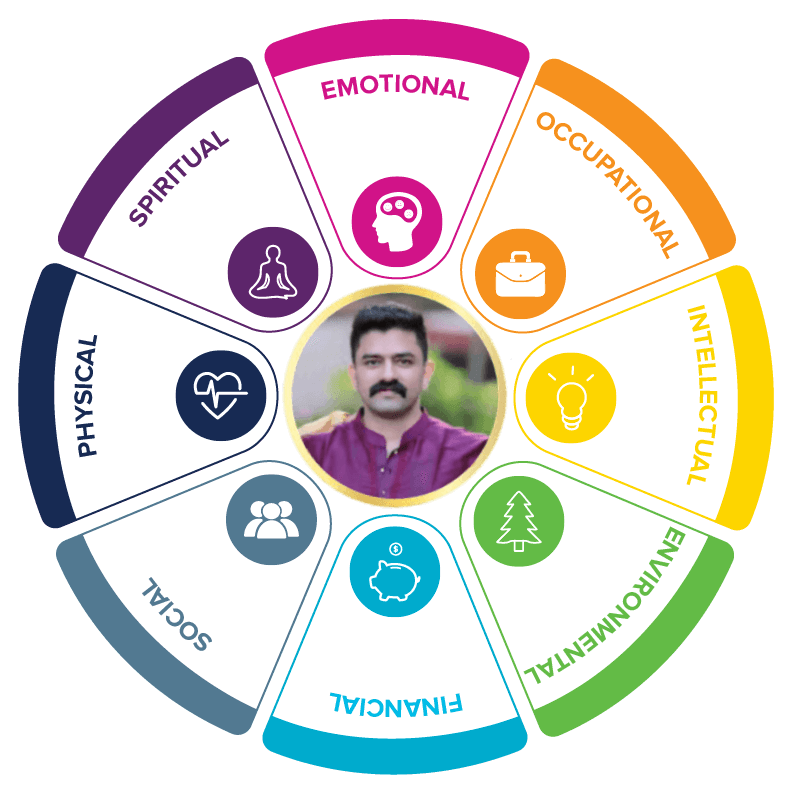Learn how to avoid becoming prey to the sentiment trap and discover ways to identify and escape from sentiment-driven manipulations. Understand how scammers and fraudsters frequently use sentiments as their favourite tool for exploitation.
In my years of experience running businesses, teaching, and offering consultations, I have seen how sentiments have often been manipulated by fraudsters and scammers to get what they want.
Sentiments are, in my view, the biggest weapon that scammers wield. They wrap their intentions in emotional stories and pleas to exploit good-hearted people. As someone who has personally experienced the repercussions of helping people based on sentiment, I now firmly believe that quality and trustworthiness should always trump sentiment in any transaction or relationship.
In this article, I’m sharing my story and insights to help you see through the sentiment trap and make smarter choices. Read on, and if you find this article useful, share it so others can avoid falling for sentiment-based scams.
Sentiments are, in my view, the biggest weapon that scammers wield. They wrap their intentions in emotional stories and pleas to exploit good-hearted people. As someone who has personally experienced the repercussions of helping people based on sentiment, I now firmly believe that quality and trustworthiness should always trump sentiment in any transaction or relationship.
In this article, I’m sharing my story and insights to help you see through the sentiment trap and make smarter choices. Read on, and if you find this article useful, share it so others can avoid falling for sentiment-based scams.
Sentiment Trap Image

The Sentiment Trap: How Scammers Use It Against You
From 2012 to mid-2024, I ran an office in Thiruvalla, Kerala. During this period, I had an experience that taught me a valuable lesson about how some people can use emotions as a cover for exploitation.
One day, a young man came into my office, crying and telling me a heart-wrenching story: his father had passed away, his mother was a heart patient, he was struggling with arrears in his engineering exams, and he had no means of support. He begged me to provide free training in IT and, after a while, even asked for a monthly stipend. I empathised with him, and despite my reservations, I agreed to his requests.
However, very soon, the reality began to surface. Despite explicit instructions to avoid using our internet connection for illegal downloads, I found him downloading torrents and warez – a serious offence in India. Even when confronted with evidence, he blatantly denied his actions. He continued to misuse resources, connect external devices to our laptops without permission, and eventually created an environment of laziness and disruption among other trainees.
After a year of tolerating his disruptive behaviour and even paying a monthly stipend, I decided it was time for him to leave. But when I tried to end our arrangement, he stole data, a client’s money, and even attempted to delete files from the server – actions that could have had severe repercussions for my business and clients.
Lesson Learned: If someone uses emotional appeals to gain your trust or service, proceed with caution. True commitment and respect for rules come from people who value your services enough to pay for them. Offering help based solely on sentiment often leads to exploitation.
One day, a young man came into my office, crying and telling me a heart-wrenching story: his father had passed away, his mother was a heart patient, he was struggling with arrears in his engineering exams, and he had no means of support. He begged me to provide free training in IT and, after a while, even asked for a monthly stipend. I empathised with him, and despite my reservations, I agreed to his requests.
However, very soon, the reality began to surface. Despite explicit instructions to avoid using our internet connection for illegal downloads, I found him downloading torrents and warez – a serious offence in India. Even when confronted with evidence, he blatantly denied his actions. He continued to misuse resources, connect external devices to our laptops without permission, and eventually created an environment of laziness and disruption among other trainees.
After a year of tolerating his disruptive behaviour and even paying a monthly stipend, I decided it was time for him to leave. But when I tried to end our arrangement, he stole data, a client’s money, and even attempted to delete files from the server – actions that could have had severe repercussions for my business and clients.
Lesson Learned: If someone uses emotional appeals to gain your trust or service, proceed with caution. True commitment and respect for rules come from people who value your services enough to pay for them. Offering help based solely on sentiment often leads to exploitation.
Why Quality Should Be the Focus, Not Emotions
This incident is just one example. I’ve seen people on the streets selling products, sharing emotional stories instead of proving the quality of their products. These are typical examples of emotional manipulation where the product’s quality takes a back seat.
Quality is something tangible, a measurable aspect that brings satisfaction to both buyer and seller. Emotions are fleeting, and buying anything based on emotional appeal often leaves you disappointed. I advise people to buy from those who promote their product’s quality, not their backstory.
Quick Tip: Always ask yourself, “Is this product’s quality worth the price, or am I simply swayed by the seller’s emotional story?”
Quality is something tangible, a measurable aspect that brings satisfaction to both buyer and seller. Emotions are fleeting, and buying anything based on emotional appeal often leaves you disappointed. I advise people to buy from those who promote their product’s quality, not their backstory.
Quick Tip: Always ask yourself, “Is this product’s quality worth the price, or am I simply swayed by the seller’s emotional story?”
Professional vs. Sentimental Engagements: A Hard Lesson Learned
I also faced a similar experience with a friend’s brother who wanted to learn about the internet and blogging. I offered him guidance as a personal favour.
To my surprise, his father later demanded that I pay for training his son, despite the fact that I was the one offering my expertise for free. This scenario baffled me – it was another example of how offering free help based on sentiment can backfire when people start expecting more than you intended to give.
Solution: Professionalism, especially when paired with fair compensation, often sets clear expectations on both sides. Those who pay for a service tend to respect the service, work harder, and genuinely appreciate the value of the effort. Free help, in my experience, has often led to situations where people either take advantage of the help or fail to value it.
To my surprise, his father later demanded that I pay for training his son, despite the fact that I was the one offering my expertise for free. This scenario baffled me – it was another example of how offering free help based on sentiment can backfire when people start expecting more than you intended to give.
Solution: Professionalism, especially when paired with fair compensation, often sets clear expectations on both sides. Those who pay for a service tend to respect the service, work harder, and genuinely appreciate the value of the effort. Free help, in my experience, has often led to situations where people either take advantage of the help or fail to value it.
Sentiment as a Filter: Why Charging for Services is Important
Over time, I have noticed that those who pay for my help are often the ones who achieve the most success. This is because they have a stake in the service – they value it and work hard to make the most of it. They take advice seriously, show respect, and understand the effort behind the help provided.
On the other hand, I found that when services are free, they attract individuals who might not truly need them or lack the commitment to put the advice into action. By charging for services, I’m able to filter out those who aren’t serious, and that ensures that I work with clients who are committed and ready to work for success.
Tip for Readers: If you’re considering offering free help or training, remember that your time and effort have value. Charging for services, even at a minimal rate, filters out those who are simply looking for free help without the intention of putting in the required effort.
On the other hand, I found that when services are free, they attract individuals who might not truly need them or lack the commitment to put the advice into action. By charging for services, I’m able to filter out those who aren’t serious, and that ensures that I work with clients who are committed and ready to work for success.
Tip for Readers: If you’re considering offering free help or training, remember that your time and effort have value. Charging for services, even at a minimal rate, filters out those who are simply looking for free help without the intention of putting in the required effort.
Moving Forward: How I Handle Sentimental Appeals Now
Today, I no longer provide free services based on sentimental appeals. My focus is on delivering high-quality services that yield results. I am transparent with my clients about what I offer, and I charge for every service provided. This practice has helped me maintain the integrity of my business and attract clients who respect the effort behind my services.
I encourage everyone reading this article to think carefully before offering free help based on sentiment. Instead, focus on professionalism and transparency – charge for your services, and ensure that clients see the value in what you offer.
I encourage everyone reading this article to think carefully before offering free help based on sentiment. Instead, focus on professionalism and transparency – charge for your services, and ensure that clients see the value in what you offer.
Closing Words: Avoid Sentiment Traps and Share the Lesson
Sentiment-based scams are everywhere – whether on the street, in business, or in personal relationships. It’s easy to fall for an emotional appeal, but before you act, always consider whether the person offering or seeking something is prioritising quality and respect. Remember, professionalism is the best way to ensure mutual respect and positive outcomes.
If you found this article helpful, please share it. Let’s help others recognise the dangers of sentiment traps and empower them to make decisions based on quality, not emotions.
I hope that my story and the insights shared here will help you avoid the mistakes I made. By learning from my experiences, you can make better, more informed choices that protect your time, resources, and well-being.
If you found this article helpful, please share it. Let’s help others recognise the dangers of sentiment traps and empower them to make decisions based on quality, not emotions.
I hope that my story and the insights shared here will help you avoid the mistakes I made. By learning from my experiences, you can make better, more informed choices that protect your time, resources, and well-being.


Comments and Discussions